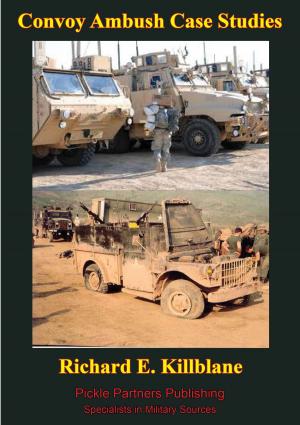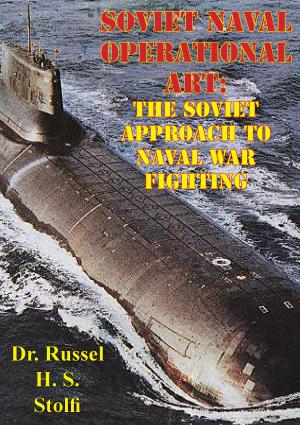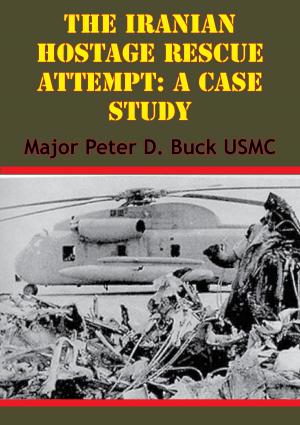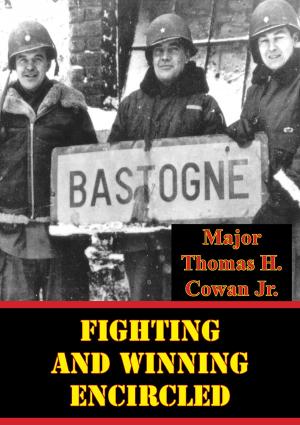The British Experience In Iraq From 1914-1926: What Wisdom Can The United States Draw From Its Experience?
Nonfiction, History, Middle East, Persian Gulf War, Military| Author: | Major Matthew W. Williams | ISBN: | 9781782896746 |
| Publisher: | Tannenberg Publishing | Publication: | August 15, 2014 |
| Imprint: | Tannenberg Publishing | Language: | English |
| Author: | Major Matthew W. Williams |
| ISBN: | 9781782896746 |
| Publisher: | Tannenberg Publishing |
| Publication: | August 15, 2014 |
| Imprint: | Tannenberg Publishing |
| Language: | English |
This thesis examines the British experience in Iraq from 1914-1926. Britain invaded Iraq to secure its oil interests and to protect its lines of communication to India. The British initially defeated Ottoman forces and captured the Basra vilayet (province) in December 1914. Although Basra’s capture accomplished the objectives that Britain had sought to achieve at the outset of the campaign, it was followed by an ill-advised advance to Baghdad that culminated in defeat by the Ottomans at Kut-al-Amara in 1916. The British regrouped, however, and resumed the offensive, capturing Baghdad in 1917 and Mosul in 1918. After the war, Britain managed Iraq as a League of Nations Mandate from 1920-1932. The British installed Iraq’s first ruler, King Feisal I in 1921 and helped demarcate its northern border with Turkey in 1926.
This thesis explores the British military campaign in Iraq during World War I and its subsequent civil administration. The thesis will examine the actions Britain took during this time period and determine, what wisdom, if any, that the United States (US) can draw from these experiences in relation to its current efforts in Iraq. This study concludes that, if the US is going to accomplish its objectives in Iraq, it should base its future relationship with Iraq primarily by incentives and not coercion. Furthermore, any attempt by the US to simultaneously develop Iraq into an independent nation-state and maintain dominant, long-term influence will likely result in failure. Overall, if the US wants to accomplish its goals in Iraq, it should treat Iraq like an equal and strive to be the best friend it has never had.
This thesis examines the British experience in Iraq from 1914-1926. Britain invaded Iraq to secure its oil interests and to protect its lines of communication to India. The British initially defeated Ottoman forces and captured the Basra vilayet (province) in December 1914. Although Basra’s capture accomplished the objectives that Britain had sought to achieve at the outset of the campaign, it was followed by an ill-advised advance to Baghdad that culminated in defeat by the Ottomans at Kut-al-Amara in 1916. The British regrouped, however, and resumed the offensive, capturing Baghdad in 1917 and Mosul in 1918. After the war, Britain managed Iraq as a League of Nations Mandate from 1920-1932. The British installed Iraq’s first ruler, King Feisal I in 1921 and helped demarcate its northern border with Turkey in 1926.
This thesis explores the British military campaign in Iraq during World War I and its subsequent civil administration. The thesis will examine the actions Britain took during this time period and determine, what wisdom, if any, that the United States (US) can draw from these experiences in relation to its current efforts in Iraq. This study concludes that, if the US is going to accomplish its objectives in Iraq, it should base its future relationship with Iraq primarily by incentives and not coercion. Furthermore, any attempt by the US to simultaneously develop Iraq into an independent nation-state and maintain dominant, long-term influence will likely result in failure. Overall, if the US wants to accomplish its goals in Iraq, it should treat Iraq like an equal and strive to be the best friend it has never had.

![Cover of the book Operation Thursday: Birth Of The Air Commandos [Illustrated Edition] by Major Matthew W. Williams](https://www.kuoky.com/images/2015/november/300x300/9781786252494-RzRY_300x.jpg)
![Cover of the book Africa To The Alps: The Army Air Forces In The Mediterranean Theater [Illustrated Edition] by Major Matthew W. Williams](https://www.kuoky.com/images/2014/august/300x300/9781782898894-lBne_300x.jpg)

![Cover of the book Tip Of The Spear: U.S. Army Small Unit Action In Iraq, 2004-2007 [Illustrated Edition] by Major Matthew W. Williams](https://www.kuoky.com/images/2014/august/300x300/9781782896395-SexW_300x.jpg)










